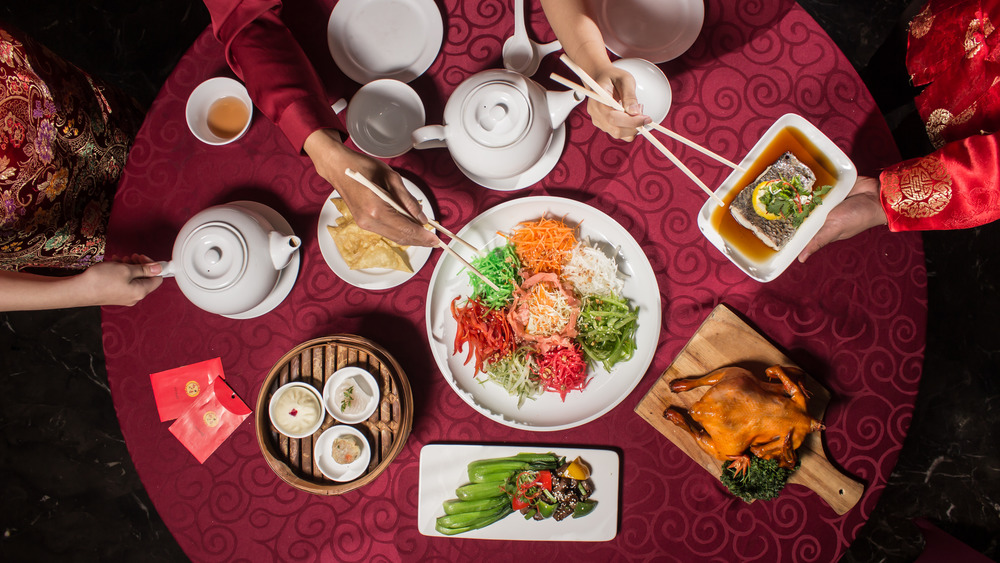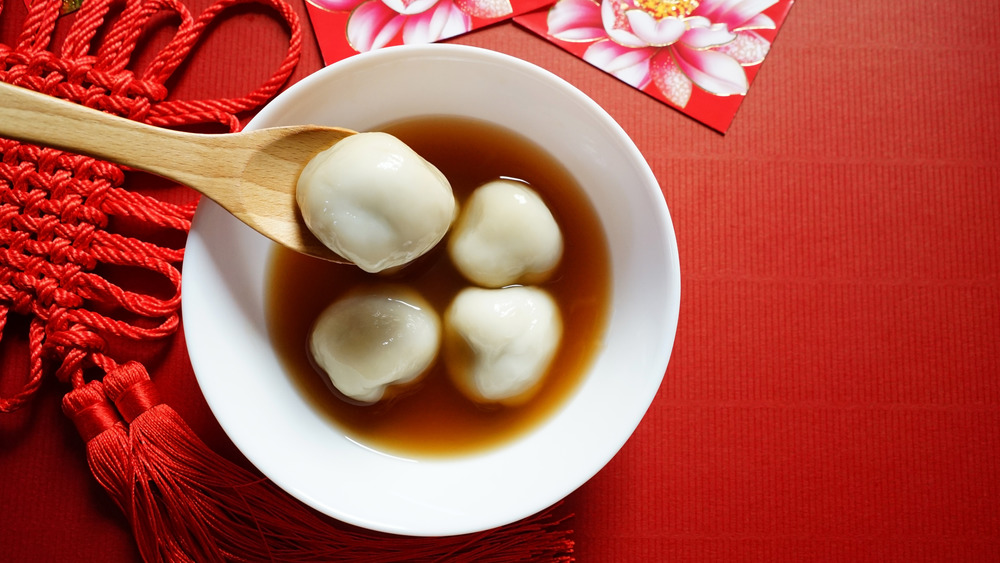This Dessert Is A Must-Have For Lunar New Year Celebrations
While all of us rely on the Gregorian calendar, which considers a year as the roughly 365-day period between two vernal equinoxes (via Sciencing), the traditional Lunar New Year is still big in many Asian cultures because it signals the start of a new agrarian calendar. For centuries, and for traditional farming communities in rural China, the Lunar New Year also meant it was time to take a break and recharge from the tedium of tilling, plowing, planting, nurturing, and harvesting (via Columbia University).
No matter what calendar you might be following, the end of one and the coming of another year is a big celebration. And while New Years' Eve parties around the world are free-for-alls that pull together all the attendees' favorite dishes, the same cannot be said of the Lunar New Year meal, which is steeped in tradition. Must-have savories include whole fish (top to tail), whole chickens, longevity noodles, and spring rolls – all of which in one form or another represents long life, prosperity, and family togetherness. There are also tangerines and oranges (good luck) and, of course, soup rice balls or tangyuan (via Oprah Magazine).
Tangyuan are a symbol of family unity
If you've never had tangyuan (which is also written as "tang yuan") before, you might be forgiven for confusing them for frozen mochi. And to a certain extent, that's what they are. Except they're more compact and can be filled with things like ground peanuts with a bit of sugar, black sesame, or red bean paste – things that can take to being boiled without losing flavor or integrity.
Website editor Frank Ye tells Vice that tangyuan are an important part of the Lunar New Year feast because of what they represent. "In Chinese, the word 'tang yuan' literally translates to 'soup rice balls' and this phrase sounds a lot like the word for 'reunion', which represents that the family is complete," Ye says. "In this day and age, it's probably the only time of the year when family members can actually be together. So eating tang yuan is a way of reasserting ourselves the importance of family and being with family."
Tangyuan is usually boiled as a dessert and served up in a sweet ginger soup (via Asian Inspirations). But some households are known to take tangyuan off the dessert menu and enjoy it as part of a savory soup instead. In this instance, the mochi-like balls are stuffed with meat, but what the dish stands for doesn't change (via KQED).

